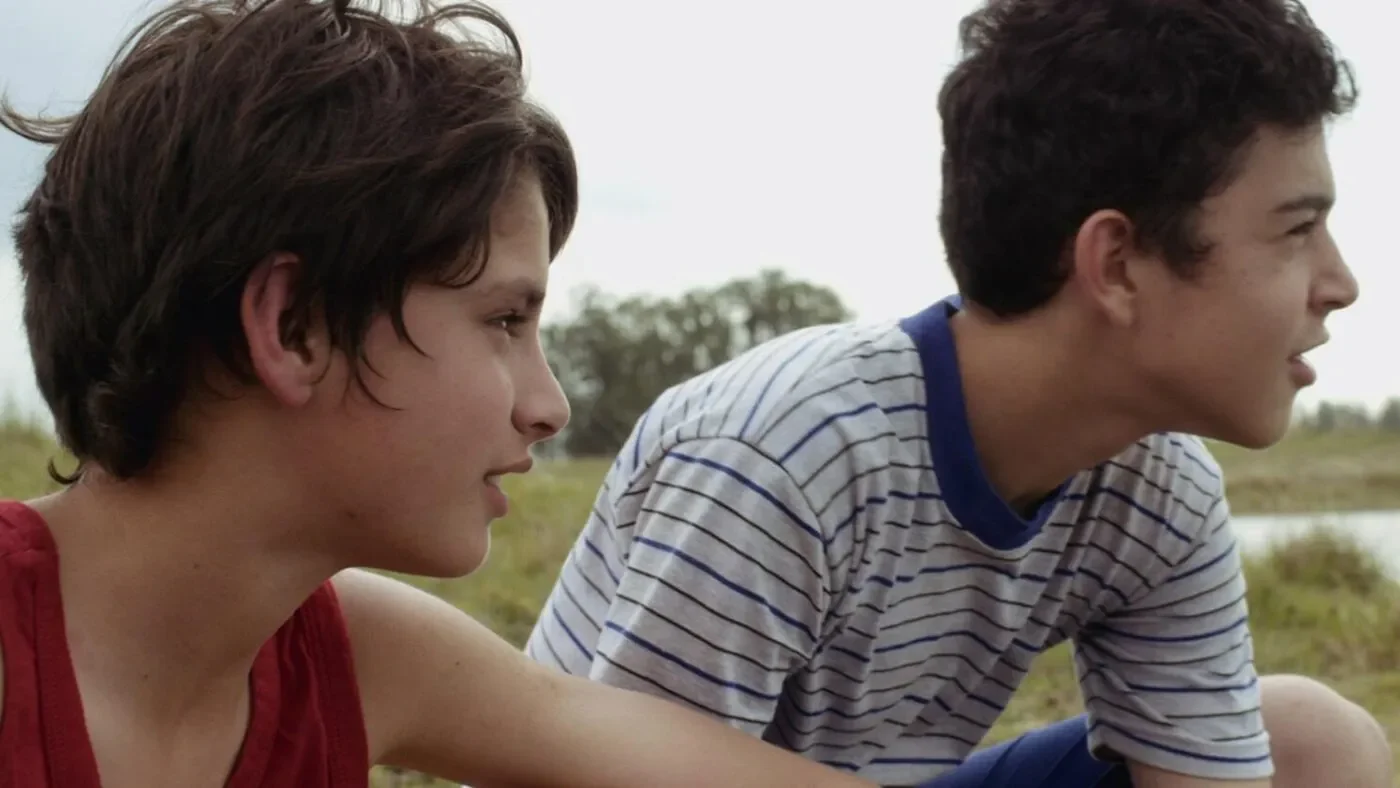Esteros (2016) Full Movie Matthew, Jeremiah, Anna
May 26, 2025
Esteros (2016): A Sun-Drenched Memory of First Love, Longing, and the Courage to Return
There are stories that unfold like secrets — slowly, softly, and only for those patient enough to listen. Esteros (2016) is one of them. A film bathed in sunlight and silence, it doesn’t scream for your attention. It invites you in, as if you’ve stumbled upon someone else’s dream — tender, unfinished, and achingly beautiful.
Set in the humid stillness of the Argentine wetlands, Esteros is more than a coming-of-age tale. It is a meditation on time, identity, and the unfinished symphonies of love that echo through the years. It’s about how deeply a first love can mark you — not with pain, but with a soft kind of permanence.
This is not a film that redefines genre or shocks with narrative twists. Instead, it captures something far rarer: emotional truth, painted with light, framed by memory, and delivered with a whisper that resonates long after the film ends.

Plot Summary
Matías and Jerónimo were once inseparable — childhood friends bound by laughter, discovery, and something tender neither of them had the words to name. During one luminous summer by the estuaries of Corrientes, their friendship gently blossomed into a first love: innocent, electric, and frighteningly real.
But as adolescence gave way to parental expectations and cultural silence, that fragile bond was broken. Matías, guided by the conservative path laid out by his family, disappeared from Jerónimo’s world — emotionally, physically, and perhaps most painfully, intentionally.
Years later, the two are reunited as adults by chance. Matías, now living in Buenos Aires with his girlfriend, returns to his hometown. Jerónimo, still rooted in that world, welcomes him with a complex mix of warmth and guarded hope. What follows is not a dramatic rekindling, but a quiet unraveling of everything left unsaid. Their reunion is filled with glances that carry too much weight, conversations heavy with subtext, and the looming question: can the past ever be rewritten — or only remembered?

Artistic Analysis
Visually, Esteros is a work of lyrical intimacy. Director Papu Curotto and cinematographer Guido Lublinsky treat the estuary landscape like a third character — humid, mysterious, and alive with memory. The film glows with natural light: golden hours, reflections on water, soft shadows that seem to carry emotion.
The transitions between past and present are handled with elegance. There is no jarring shift — only echoes. The visual grammar of the film mimics memory: fragments, sensations, moments caught half-remembered. Flashbacks are not intrusive flashbulbs but quiet ripples, deepening the emotional resonance rather than disrupting it.
The mise-en-scène avoids overstatement. Bedrooms, fields, old bikes — each space feels lived-in, real, and emotionally loaded. Silence plays a crucial role, allowing the viewer to inhabit the stillness between words, the breath before a confession.

Performances
Ignacio Rogers as adult Matías delivers a performance carved out of internal conflict. He’s a man who’s learned to hide from himself, and Rogers plays this repression with exquisite restraint. His eyes are constantly searching — for comfort, for permission, for Jerónimo.
Esteban Masturini brings a quiet strength to Jerónimo. He is not bitter, but there’s a fatigue in him — the weariness of someone who has had to carry the weight of a goodbye that was never his choice. He plays Jerónimo with warmth, but never desperation. It’s a graceful, grounded performance.
The young actors, Joaquín Parada and Blas Finardi Niz, are equally remarkable. Their portrayal of Matías and Jerónimo as boys is tender and heartbreakingly pure. There’s an authenticity in their chemistry that elevates the entire film. They don’t act their emotions — they seem to live them.

Emotional Impact
The emotional weight of Esteros is not in dramatic confrontations or declarations. It lives in the unsaid. In a touch withheld. In the ache of recognition that comes too late.
The film captures the melancholy of unresolved love — not as tragedy, but as a part of life that is both beautiful and sad. It speaks to anyone who has ever wondered “what if,” anyone who has ever buried a part of themselves to fit into a life that feels like someone else’s reflection.
What makes the film so affecting is its empathy. No character is vilified. Matías is not a villain for leaving, nor is Jerónimo a victim for staying. They are two men shaped by choices they barely understood at the time — and by a world that didn’t give them many.
Tone & Rhythm
The tone of Esteros is gentle, contemplative, and soaked in nostalgia. It’s not a film that builds toward a climax — it drifts, like the estuary waters themselves. And that rhythm is its strength. It gives the viewer time to feel, to remember, to mourn with the characters.
There are no sharp tonal shifts — the film maintains a cohesive emotional palette throughout. Even moments of joy are tinged with a quiet sadness, as if time itself is watching, reminding us that nothing can stay suspended forever.
The pacing may feel slow to some, but to others it will feel like a breath of air held just a moment longer than usual — enough to make your chest ache.

Final Thoughts
Esteros is not a loud film. It’s not built to impress — it’s built to resonate. It’s a love letter to the unspoken things that live between two people who were once everything to each other. A story of love never fully lived, yet never truly lost.
More than a romance, it is a reckoning. With memory. With fear. With the person we once were and the person we’re afraid to become. And through all its quietude, it leaves behind a thunderous echo — a reminder that even the gentlest loves can shape us forever.
For those who have ever hidden their hearts, for those who have loved in silence, Esteros is not just a film. It’s a homecoming.

